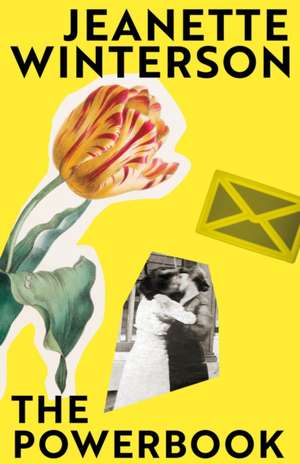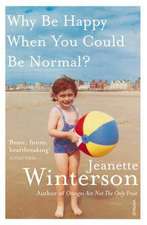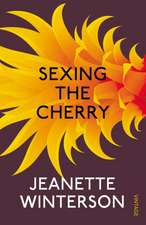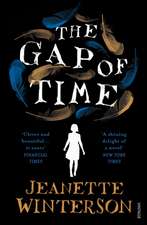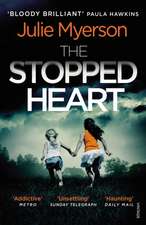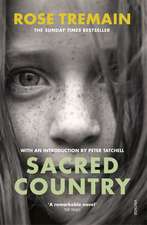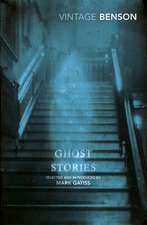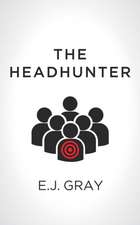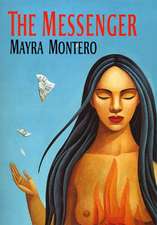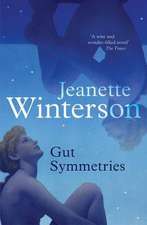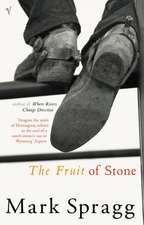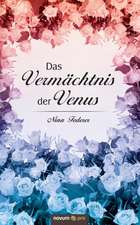The Powerbook
Autor Jeanette Wintersonen Limba Engleză Paperback – 4 sep 2014
| Toate formatele și edițiile | Preț | Express |
|---|---|---|
| Paperback (2) | 52.64 lei 25-31 zile | +18.18 lei 5-11 zile |
| Vintage Publishing – 4 sep 2014 | 52.64 lei 25-31 zile | +18.18 lei 5-11 zile |
| Vintage Publishing – 30 sep 2001 | 101.80 lei 22-36 zile |
Preț: 52.64 lei
Preț vechi: 63.13 lei
-17% Nou
Puncte Express: 79
Preț estimativ în valută:
10.07€ • 10.54$ • 8.33£
10.07€ • 10.54$ • 8.33£
Carte disponibilă
Livrare economică 20-26 martie
Livrare express 28 februarie-06 martie pentru 28.17 lei
Preluare comenzi: 021 569.72.76
Specificații
ISBN-13: 9780099598299
ISBN-10: 0099598299
Pagini: 256
Dimensiuni: 128 x 198 x 20 mm
Greutate: 0.19 kg
Editura: Vintage Publishing
ISBN-10: 0099598299
Pagini: 256
Dimensiuni: 128 x 198 x 20 mm
Greutate: 0.19 kg
Editura: Vintage Publishing
Notă biografică
A novelist whose honours include England's Whitbread Award and the American Academy's E.M. Forster Award, Jeanette Winterson burst into the literary community as a very young woman in the eighties with Oranges Are Not the Only Fruit and soon won the praise of such masters as Gore Vidal ("the most interesting young writer I have read in twenty years") and Muriel Spark ("just what we need now in the literature of the English language"). She lives in London and the Cotswolds.
Extras
language
costumier
To avoid discovery I stay on the run. To discover things for myself I stay on the run.
It's night. I'm sitting at my screen. There's an e-mail for me. I unwrap it. It says--Freedom, just for one night.
Years ago you would have come to my shop at the end of the afternoon, telling your mother you had an errand for the poor.
????????At the tinkle of the bell you would have found yourself alone for a moment in the empty shop, looking at the suits of armour, the wimples, the field boots, and the wigs on spikes, like severed heads.
????????The sign on the shop says verde, nothing more, but everyone knows that something strange goes on inside. People arrive as themselves and leave as someone else. They say that Jack the Ripper used to come here.
????????You stand alone in the empty shop. I come out from the back. What is it you want?
????????Freedom for a night, you say. Just for one night the freedom to be somebody else.
????????Did anyone see you arrive?
????????
No.
????????Then I can pull the blinds and light the lamp. The clock ticks, but only in time. From outside, looking in, there will be only a movement of shadows--the looming of a bear's head, a knife.
????????You say you want to be transformed.
This is where the story starts. Here, in these long lines of laptop DNA.
Here we take your chromosomes, twenty-three pairs, and alter your height, eyes, teeth, sex. This is an invented world. You can be free just for one night.
Undress.
????????Take off your clothes. Take off your body. Hang them up behind the door. Tonight we can go deeper than disguise.
It's only a story, you say. So it is, and the rest of life with it--creation story, love story, horror, crime, the strange story of you and I.
????????The alphabet of my DNA shapes certain words, but the story is not told. I have to tell it myself.
????????What is it that I have to tell myself again and again?
????????That there is always a new beginning, a different end.
????????I can change the story. I am the story.
Begin.
OPEN
HARD
DRIVE
I want to start with a tulip.
In the sixteenth century the first tulip was imported to Holland from Turkey. I know--I carried it myself.
????????By 1634 the Dutch were so crazy for this fish-mouthed flower that one collector exchanged a thousand pounds of cheese, four oxen, eight pigs, twelve sheep, a bed and a suit of clothes for a single bulb.
????????What's so special about a tulip?
????????Put it this way . . . When is a tulip not a tulip?
????????When it's a Parrot or a Bizarre. When it's variegated or dwarf. When it comes called Beauty's Reward or Heart's Reviver. When it comes called Key of Pleasure or Lover's Dream . . .
????????Tulips, every one--and hundreds more--each distinctively different, all the same. The attribute of variation that humans and tulips share.
????????It was Key of Pleasure and Lover's Dream that I carried from Sulyman the Magnificent to Leiden in 1591. To be exact, I strapped them under my trousers . . .
. . .
'Put it this way.'
????????'No. I'll crush them when I rest.'
????????'Put it this way . . .'
????????'No. I'll crush them when I pray.'
????????'Put one here and one here . . .'
????????'No! It will look as though I have an evil swelling.'
Well, where would you store a priceless pair of bulbs?
That gave me the idea.
In the same place as a priceless pair of balls.
Yes! Yes! Yes!
When I was born, my mother dressed me as a boy because she could not
afford to feed any more daughters. By the mystic laws of gender and economics, it ruins a peasant to place half a bowl of figs in front of his daughter, while his son may gorge on the whole tree, burn it for firewood and piss on the stump, and still be reckoned a blessing to his father.
????????When I was born, my father wanted to drown me, but my mother persuaded him to let me live in disguise, to see if I could bring any wealth to the household.
????????I did.
????????So slender am I, and so slight, that I can slip under the door of a palace, or between the dirt and the floor of a hovel, and never be seen.
????????A golden thread, a moment's talk, a spill of coffee, a pepper seed, is all the distance I am between one side and the other.
????????I became a spy.
????????Sulyman himself appointed me and his instruction now is that I should get into a boat and bear a gift to his friends, the Dutch. A gift that every scurvy captain and leprous merchant will try to steal.
????????How to conceal it?
????????Put it this way . . .
My mother got some stout thread and belted it through the natural die-back of the bulb tops. Then she sewed the lot on to a narrow leather strap and fastened it round my hips.
????????'Should they hang dead centre like that?'
????????(My mother went to inspect my father.)
????????'Dress them on the left.'
????????'That's good, but there's something missing.'
????????'What?'
????????'The bit in the middle.'
I went up into the hills, for tulips grow as thick as thieves here. I found
myself a well-formed fat stem supporting a good-sized red head with rounded tips. I nicked it at the base with my knife and the juice covered my fingers.
????????At home my mother embalmed the tulip, and in a few days it was ready to wear.
????????This was my centrepiece. About eight inches long, plump, with a nice weight to it. We secured it to my person and inspected the results. There are many legends of men being turned into beasts and women into trees, but none I think, till now, of a woman who becomes a man by means of a little horticultural grafting.
????????My mother knelt down and put her nose close.
????????'You smell like a garden,' she said.
. . .
The sun rose. The ship hoisted sail. I lifted my arms and waved and waved. Then, adjusting my tulip, I went below.
I seemed to dream of buffalo muddying the banks of clear streams that spilled down into the watercress beds. There were crystallised oranges on a table in the sun, and small cups of sweet coffee, and the little workshops and weaving sheds of our town.
????????There were women at the roadside selling hard-boiled eggs and homemade dolma, while their children wove simple mats and their men unloaded charcoal or packed tobacco, or went in and out of Nikolaus the pawnbroker's.
????????I dreamed I was ploughing a field and the stork was following behind me and inspecting the turned earth and waiting by the marshy edges for a frog.
????????At the bazaar, the copper pots were coming in stacked on the ox-carts. Eager hands carried them to shaded rugs, to burnish up the spatterings with a cloth. All the pots were sealed--it keeps the genie in, and no Turk would want a pot without a genie.
????????Humble or grand, what is made must keep with it the memory of what cannot be made. In the spun cloth, the thrown earthenware, the beaten pot and the silver box, is Allah--the spirit of God in the things of the world.
????????Atom and dream.
I awoke to a rattle. The only light in my cabin was a wick in a cruse of oil. I took it from the shelf over my hammock and looked down. I had filled a wooden bucket with water for washing and drinking, and left my metal cup on its chain inside the bucket. Knocking the cup from side to side as it drank was a long-haired rat.
In the morning, as the only paying passenger on the spice ship, I was invited to breakfast with the Captain. He offered me roast chicken and his wife's hard-baked bread covered in pumpkin seeds.
????????He was a man of the world and a worldly man, who profited from trade with the English, regularly cargoing the tin, coarse cloth and shot the Sultan needed for his armies, in return for the jewels and luxury stuffs the English loved.
????????If tin for gold and shot for rubies seems a strange exchange, blame the Pope. The Pope, not one but many Popes, the sum-total-continuous-Pope without beginning or end, had refused to allow his flock to trade with the Infidel, and since his flock was all Europe the Ottoman Empire had trouble supplying its war machine. Then, in 1570, the Pope finally excommunicated Queen Elizabeth and her subjects. We were all infidels now and Britain and the East began to trade.
This Captain had been brought up in Istanbul. His mind was made of minarets and domes. He capped himself with spacious ease. He was his own call to prayer.
????????'Be confident,' he advised me. 'Be confident even in your mistakes. In
Allah there is no wrong road. There is only the road you must travel.'
????????'And if the road leads nowhere?'
????????He shrugged. 'Turn your Nowhere into Somewhere.'
????????He smiled. 'You are young. You have hopes and fears but no experience.
You do not know that the gilded palaces and the souks do not really exist. And that is how it should be. You will live in this world as though it is real, until it is no longer real, and then you will know, as I do, that all your adventures and all your possessions, and all your losses, and what you have loved--this gold, this bread, the green glass sea--were things you dreamed as surely as you dreamed of buffalo and watercress.'
????????'Am I always sleeping?'
????????'Neither sleeping nor waking. Only the body sleeps and wakes. The mind moves through itself.'
????????'And when I am dead?'
????????'Only the body lives and dies.'
????????He threw his chicken carcass into the sea.
An animal hides to save itself. While the Captain pissed extravagantly overboard, I pleaded sea-sickness and squatted behind a coil of rope.
????????I know about disguise. I disguise myself from predators. I disguise myself from circumstance. The camouflages I use are elaborate, but I know what they are. Even my body is in disguise today.
????????But what if my body is the disguise? What if skin, bone, liver, veins, are the things I use to hide myself? I have put them on and I can't take them off. Does that trap me or free me?
'Ali!'
????????It was the Captain.
????????'Let me tell you the story of Antioch . . .'
????????'No one who visits Antioch today can imagine a time when men read in the pink marble libraries, and argued the limits of existence by the fountains in the square.
????????'And yet it was so.
????????'No one, riding his donkey through the red dust of the wind-crumbled rocks, can imagine a time when women here bathed in pools as deep as light and freshwater fish criss-crossed in the shadows of the aqueduct.
????????'Yet it was so.
????????'Sometimes, travelling through valleys so desolate that a hawk can hardly live, I have seen ships of red porphyry from Egypt and a stone sarcophagus now used by herders for their goats. Saddest of all is the desert of Pisidian Antioch, once the site of a city of commerce and learning, now not even a graveyard.
????????'Antioch was an aqueduct city. Its stone arches defeated hill and plain alike to draw water from a distant rock tunnel. This sparkling life was carried back to itself and poured over its crops and its citizens until both flourished. They say that the waters of Antioch could cure a blind man and tempt a virgin. Palms were taller than towers.
????????'It was so.
????????'A civilisation built on an aqueduct is a perilous one. While its people eat and drink, read and argue, someone must defend the live-giving archway. If they fail, and if they sleep, one barbarian with a pickaxe can drought thought.
????????'Nobody thinks without a cup of water. The dreams of the dying cannot be irrigated. The world ends, and you with it, to retreat back into the mind of God.
????????'The barbarians broke up the marble streets and used the slabs for sheepfolds. Shining pillars brought in ships, and dragged by oxen for the magnificence of the temple, were pulled down to be inserted horizontally as wall supports. Birds nested in the dry cups of the public fountains. The barbarians pitched their tents and scooped up the water in their hands. That was enough for them. That was why they had come.
????????'In the broken aqueduct of Antioch is the history of the downfall of Ephesus, of Miletus, of Pergamum, and of other proud cities of Asia Minor, which once shone among the great names of the world.'
????????I said, 'Who were the barbarians?'
????????The Captain said, 'You. The Turks destroyed the aqueduct to Antioch.'
????????I was angry. I said 'The Turks are not barbarians.'
????????He looked at me keenly. 'There is always a city. There is always a civilisation. There is always a barbarian with a pickaxe. Sometimes you are the city, sometimes you are the civilisation, but to become that city, that civilisation, you once took a pickaxe and destroyed what you hated, and what you hated was what you did not understand.
????????'Antioch was commerce, refinement, leisure, fastidiousness, ideas. Its citizens dressed in silks when we Turks could barely sew a goatskin. What were their libraries and temples to us?
????????'And now Istanbul is wealthier than Venice and Allah trades across the world. We give our children rubies to play with and the shutters of the seraglios are lined with gold.'
????????'We are invincible,' I said.
????????'Do you think so?' he said. 'In three hundred years the Turks may be back among his goats.'
????????'Impossible!' I cried. 'And if, as you say, nothing exists, then there can be no such place as the future.' (I was pleased with myself for saying this.)
????????The Captain laughed and kicked me fondly. 'There will be a future. We believe in our unreality too strongly to give it up.'
????????I was silent. The Captain's kick had dislodged me, and my own unreality was beginning to press on me. I longed to scratch.
????????'Life is a blessing, Ali, but death is a chance.'
How could Ali barter philosophies when his bulbs were itching? He would gladly have sacrificed the vaporous universe for a chance to get both hands down his trousers, and that is exactly what he was doing when the pirates from Genoa swarmed over the ship.
????????These men were as burnt as bread in the fire, though their eyes were clear as fire. They murdered the crew, beheaded the Captain, and were about to squeeze Ali like a pomegranate, when one of them noticed his hands clutching his bulbs--that is, his balls.
????????'Pissing yourself are you?' said the chief pirate.
????????Ali was so scared that he just told the truth.
????????'Protecting my treasure,' he said, and his reply was so stupid that it made the pirate laugh. He pulled out his own cock and held it under Ali's nose.
????????'This is treasure. You aren't worth a flea's ransom.'
????????Ali sucked it. What else could he do? He had never done it before, but desperation is a good teacher and he soon found his tongue as fluent as any whore's in the marketplace.
????????The pirate grunted.
????????'Why kill you when we could sell you?'
????????And that is how Ali found himself in the apartments of the Italian envoy to the Turks.
????????Trembling, hungry, dirty and alone, Ali sat on the floor and wondered what
could become of him. Two servants entered. One filled a copper bath, while the other laid out food and fresh clothes. Neither spoke to Ali until they had finished their tasks. Then one said, 'You are to eat and bathe and dress yourself and be ready at sundown.'
????????'Ready for what?'
????????'The Princess.'
I unstrapped myself and lay in the bath. I reckoned I should make a clean breast of it, though my breasts were not the part in dispute. As a woman, what would be my fate? Mercy or death?
????????As a boy, I had nothing to look forward to, except perhaps . . .
'Sexual congress,' said the Princess.
????????She was walking round and round me as though I were a fountain, pausing now and then to dabble her hands. She was beautiful, young, haughty.
????????'I am to be married in one month, and my husband wishes me to learn something of the arts of love. He has appointed you to teach me.'
????????'I know nothing,' I said.
????????'That is why you have been chosen. You are only a boy and can do me neither hurt nor insult. You will be gentle. You will be slow. If I do not like you I shall behead you.'
????????'Yourself?'
????????'Of course not.'
????????'Lady,' I said, 'there must be many in your kingdom better equipped than I am.'
????????'They have not your treasure,' she said. 'We have heard how you feared less for your life than for your member.'
????????'My treasure is not what you think it is.'
????????'I think nothing. Kiss me.'
????????I kissed her. It wasn't so bad.
Days and nights passed. I kissed her mouth and her neck. I kissed her breasts and her belly. I kissed her lower than her belly and was pleased with the ripples of pleasure I found there. She was dainty and sweet, a dish of figs in fine weather.
????????We were approaching the inevitable, but we weren't there yet.
\
Recenzii
“A manifesto for bravery in love...beautiful writing.”–Los Angeles Times
“Winterson writes about love the way van Gogh painted sun-flowers: lovingly, obsessively, always seeking a fresh way to present the subject.”–Entertainment Weekly
“Winterson is way ahead of most writers in finding new ways to tell a story.”–San Francisco Chronicle
“Winterson writes about love the way van Gogh painted sun-flowers: lovingly, obsessively, always seeking a fresh way to present the subject.”–Entertainment Weekly
“Winterson is way ahead of most writers in finding new ways to tell a story.”–San Francisco Chronicle
